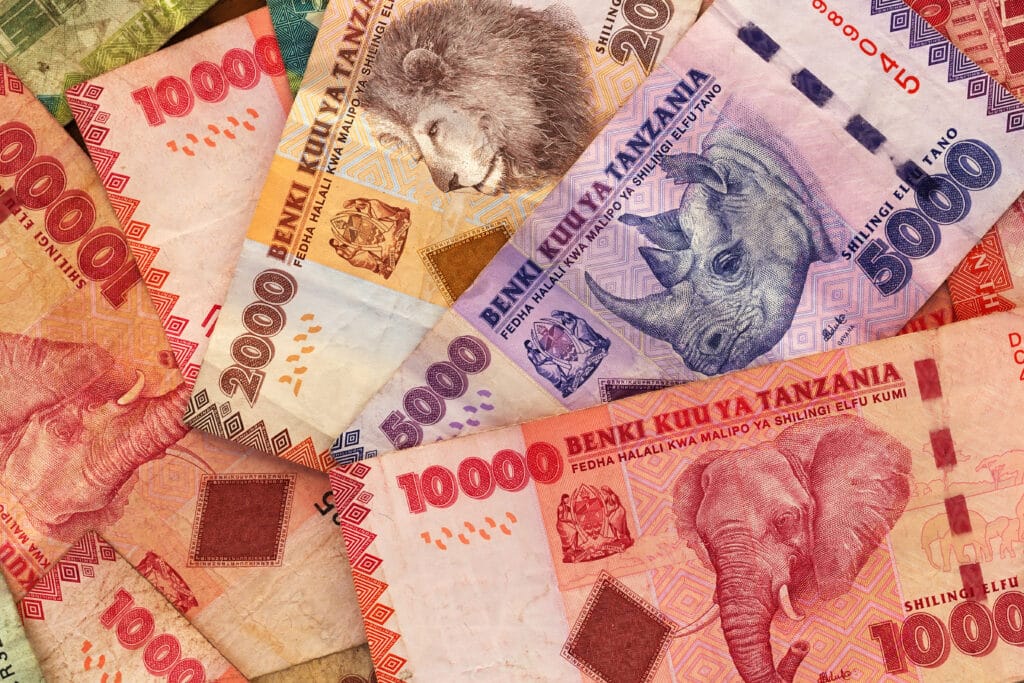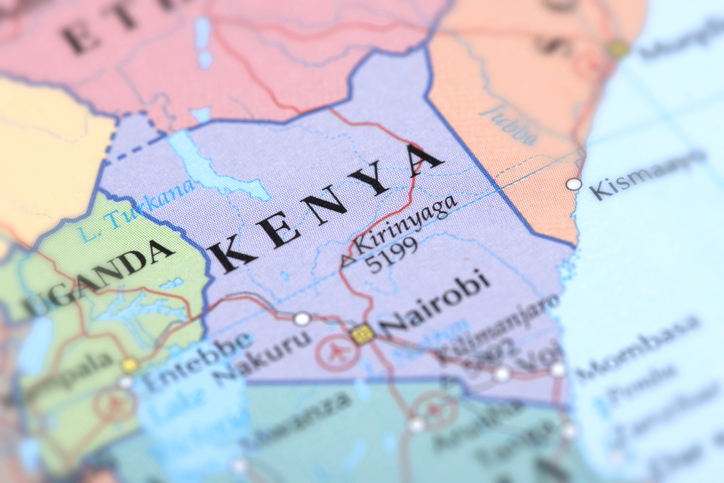
Good morning
If you’re a venture capitalist investing in Africa, take our short survey to share your insights on investment priorities, challenges, and predictions for 2025.
Your input will contribute to a comprehensive analysis of the trends shaping Africa’s venture capital landscape. Take the survey now.

- South Africa’s Stitch acquires ExiPay
- Bento Africa faces LIRS & EFCC scrutiny amid tax scandal
- Tanzania will roll out a new currency next month
- Kenya receives credit rating upgrade
- World Wide Web 3
- Events
Startups
South Africa’s Stitch acquires ExiPay

Twenty-seven days into 2025, and the M&A market is off to a brisk start. South African fintech startup Stitch has acquired payments startup ExiPay, marking the first major deal of the year. The acquisition allows Stitch to offer online and in-person payment solutions for large enterprises, giving it a stronger foothold in the enterprise sector.
For pace, 2025 is faster than 2024, when the first big deal didn’t come until February—Carbon’s acquisition of Vella Finance. 2025’s early momentum suggests we might see more deals lining up faster this year.
M&A lawyers, you’ve been warned: your calendar is about to get packed.
Startups are waking up earlier, looking to acquire rather than build from scratch. Stitch CEO Kiaan Pillay made that clear in a call with , explaining that building ExiPay’s in-person payment tech internally would’ve taken 18–24 months—slowing down their strategy to fill a crucial gap. By acquiring ExiPay, Stitch got the solution it needed, fast.
It’s a strategy we’re seeing elsewhere, too. SeamlessHR, for instance, considered acquiring PaidHR twice to bolster its HR-tech offerings. With consolidation becoming the name of the game, startups are increasingly looking to acquire businesses that complement their existing products, not just build new ones.
M&A isn’t just about growth; it’s about gaining competitive advantage. Whether it’s access to new tech, licences, or market share, acquisitions are becoming a core strategy for African tech companies eager to solidify their positions in a cutthroat market.
A promising start for 2025—let’s see if the rest of the year can keep up.
Bonus: How much did Stitch pay to acquire ExiPay? That’s not been disclosed, following a trend of African startups being shy about sharing how much things cost.
Collect payments Fincra anytime anywhere

Are you dealing with the complexities of collecting payments in NGN, GHS or KES? Fincra’s payment gateway makes it easy to accept payments via cards, bank transfers, virtual accounts and mobile money. Get started now.
Startups
Bento Africa faces LIRS & EFCC scrutiny amid tax scandal

If you were anywhere near Nigerian Twitter last week, you probably saw the explosive tweet from Hack Sultan, co-founder of edtech AltSchool, accusing HR-tech startup Bento Africa of only remitting 100 naira in taxes for employees—while collecting millions. The tweet went viral.
Suddenly, Bento wasn’t just another HR payroll service in a sea of options; it was the topic. Old accusations against Bento resurfaced, showing that the issues date back to 2023.
Yet, there’s a lot that’s not been shared or reported.
Here’s an excerpt from our exclusive report this morning that shows just how serious the allegations against Bento are:
“Bento Africa, a Nigerian technology HR startup founded in 2019, is facing allegations of failing to remit tax and pension payments on behalf of clients. The allegations, which are now being investigated by the Lagos Inland Revenue Service (LIRS) and the Economic and Financial Crimes Commission (EFCC), triggered a client exodus.”
Bento’s CEO, Ebun Okubanjo, confirmed the investigations but insists the company is addressing the issues. He points to Nigeria’s “manual” tax remittance process as the culprit, explaining the delays were unintentional—and that these issues only affect “a small, vocal” percentage of Bento’s clients.
But here’s the question: How did these issues go unnoticed for months?
Economy
Tanzania to change its currency in February

In October, Tanzania’s apex bank, the Bank of Tanzania (BoT) announced plans to introduce new notes.
The bank told financial institutions that it was phasing out bank notes created between 1985 and 2003. In its memo to those banks, BoT said, “The deposit or exchange of old banknotes shall last for three months from 06 January. 2025 to 05 of April 2025 from which they shall cease to be a legal tender.”
Last week, the bank announced that its new currency is now ready for circulation.
The newly minted paper bills—TZS 1000 ($0.4) blueish bills, 2000 ($0.8) brown bills, 5000 ($2) violet bills, and 10000 ($4) red bills—will enter into circulation from February 1, according to BoT governor Emanuel Tutuba.
The new currency comes with minimal design changes but improved security features and new appended signatories. The move comes as Tanzania seeks to combat counterfeit currency.
This is not Tanzania’s first time is modernising its currency. In 2023, the BoT said it was working on a digital currency. At the time, the bank gave no time frame for when it would launch the digital currency but said it was exploring the issuance of different forms of CBDCs, including tokenised and account-based digital currency.
Tanzania’s currency change follows Sudan’s recent currency change. In December 2025, the Sudanese government introduced new 500 ($0.20) and 1,000 ($0.50) banknotes as part of efforts to stabilize its war-torn economy. The move aimed to demonetise the old notes, rendering banknotes looted during the ongoing civil war worthless.
Never miss an update from Paystack

Subscribe to Paystack for a curated dose of product updates, insights, event invites and more. Subscribe here →
Economy
Kenya gets a positive credit rating from Moody’s

Kenya has received a credit rating upgrade from Moody’s Investors Service, changing its outlook from negative to positive, signalling renewed confidence in Kenya’s ability to manage its debt and lower financial risks. Moody’s highlighted better debt affordability and reduced borrowing costs, which could help the government access funds from global lenders more easily.
This comes as the Kenya Kwanza government plans to borrow heavily, both locally and internationally, to address its budget deficit which increased from KES 9.8 billion ($76 million) to KES 112 billion ($868 million) between July and September 2024. Moody’s noted that the government’s recent efforts, like passing tax laws to increase revenue, show a commitment to improving financial stability. Additionally, the country is trying to regulate the crypto sector to widen its tax net. On January 10, Kenyan lawmakers proposed a public consultation on the bill.
However, the agency warned that Kenya’s high debt levels still pose a challenge and stressed the importance of maintaining fiscal discipline.
Kenya’s public debt stood at KES 10.79 trillion ($83.5 billion) as of September 2024, and the government is expected to repay over KES 1.5 trillion (11.6 billion) to foreign creditors between 2025 and 2026. To manage this burden, the government plans to issue Eurobonds and explore alternative funding sources like green financing and bonds from the Chinese (Panda) and Japanese (Samurai) markets.
Moody’s upgrade is expected to attract more investors, which could improve borrowing terms. However, the World Bank has urged Kenya to reduce its debt to 55% of GDP by 2029. This will require better tax collection, reduced government spending, and smarter debt management to ensure long-term economic growth.
CRYPTO TRACKER
The World Wide Web3
Source:

|
Coin Name |
Current Value |
Day |
Month |
|---|---|---|---|
| $100,593 |
– 4.29% |
+ 6.51% |
|
| $3,159 |
– 5.62% |
– 5.50% |
|
|
$2.96 |
– 5.56% |
+ 37.25% |
|
| $0.97 |
+ 7.05% |
+ 20.24% |
* Data as of 06:15 AM WAT, January 27, 2025.
Events
- GITEX AFRICA 3rd edition is NOW OPEN for registration. Africa’s largest tech and start-up event will be held from 14-16 April 2025 in Marrakech, Morocco. Attend to see the leading brands in tech, and the most innovative startups, and network with tech leaders, investors, speakers and government delegations from across Africa and across the globe. Register here.
- The Lagos Tech Fest is set to hold its fifth edition from February 19–20, 2025 at the Landmark Event Center, VI, Lagos. Lagos Tech Fest gathers startups, innovators, investors, and government representatives to shape Nigeria’s tech future through conferences, exhibitions, networking, and driving ecosystem investments. Get a ticket here.

- “I make ₦70,000”: TikTok Live is Nigeria’s new marketplace
- How Bolt Market plans to ease itself into grocery deliveries in Nairobi
- NESG predicts 24.7% inflation rate in Nigeria
- Court directs CA to determine Safaricom’s Lipa na M-Pesa case
- Vanguard’s S&P 500 Fund is about to become the world’s largest ETF
Written by: Emmanuel Nwosu & Faith Omoniyi
Edited by: Timi Odueso & Olumuyiwa Olowogboyega
Want more of ?
Sign up for our insightful newsletters on the business and economy of tech in Africa.
- The Next Wave: futuristic analysis of the business of tech in Africa.
- TC Scoops: breaking news from
P:S If you’re often missing TC Daily in your inbox, check your Promotions folder and move any edition of TC Daily from “Promotions” to your “Main” or “Primary” folder and TC Daily will always come to you.











/cdn.vox-cdn.com/uploads/chorus_asset/file/25762139/STKS488_TARIFFS_CVirginia_D.jpg)


